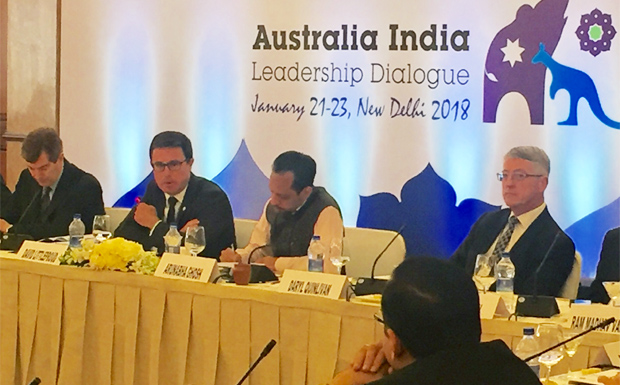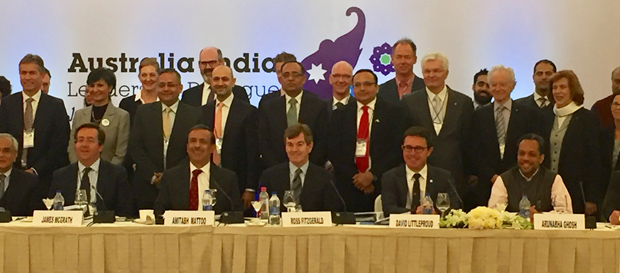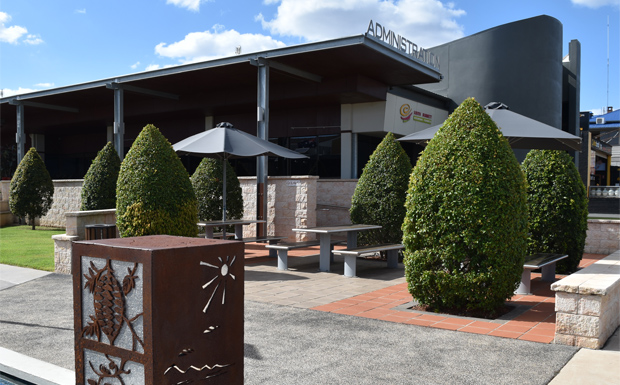

January 23, 2018
Member for Maranoa, Agriculture Minister David Littleproud, has raised Australian farmers’ concerns about sudden hikes in import tariffs for pulses – including mung beans and chickpeas – during his trade visit to India.
Mr Littleproud said the tariff changes had been implemented without notice, hitting Australian farmers.
However, the Indian Government has now agreed to provide notice to the Australian grains industry of any future rises.
Mr Littleproud said the agreement showed the Indian Government recognised the importance of its relationship with Australia’s grain farmers.
“Australia has increased its pulse production over recent years with a particular goal of better supplying high-quality, safe products to the Indian market, where pulses are such a key part of people’s daily diet,” Mr Littleproud said.
“Australia exported $1.1 billion worth of chickpeas, $197 million worth of lentils and $29 million worth of mung beans to India in 2016–17.
“As a dependable supplier, certainty in our trading relationships is critical for ongoing growth and reliable returns at the farm gate.
“Australian suppliers of pulses need that certainty to ensure continued high quality exports into the future.”
Mr Littleproud said the meetings held with Indian ministers in Delhi had been positive.
“In two separate meetings I requested India respect contracts entered into prior to the raising of tariffs on December 21, better transparency of grain stocks, including chickpeas and pulses, and a suitable lead-in time for any future tariff impositions.
“I’m pleased to get a commitment our grain, chickpea and pulse farmers will receive advance notice of any tariff changes in future. Growers invest when they have certainty and we thank India for providing greater certainty.
Mr Littleproud had meetings with India’s Central Minister of State for Agriculture and Farmers Welfare, Krishna Raj, and also Commerce and Industry Minister Suresh Prabhu.
“(Minister) Prabhu acknowledged concerns raised by Australian grain exporters,” he said.
Mr Littleproud said Minister Raj had given a commitment that India would consider the impact on Australian suppliers in future, and if a similar event unfolded, would give forward notice of stocks before the imposition of tariffs.
Two-way agricultural trade between India and Australia topped $3.4 billion in 2016–17.
Total trade between the two countries was $20.7 billion in 2016-17.
“India is now a top-tier trading partner for Australian farmers and food producers, and the Australian Government wants the best outcomes for farmers and consumers in both nations as that relationship continues to expand,” Mr Littleproud said.
He said Australia supplied pulses, grains, cotton, wool and nuts to India, and India supplied rice, spices, tea, coffee, and various food ingredients to Australia.
* * *
AgForce Grains President Wayne Newton said India’s decision to put a 30 per cent tariff on chickpeas had been a devastating blow for Queensland grain growers, who produced 86 per cent of Australia’s chickpea exports.
“Chickpeas are Queensland’s fastest growing export product, increasing by more than 300 per cent in 2016-17 to be worth almost $800 million, largely through demand from India,” he said.
“Chickpeas now make up almost half of our total bulk export grain market, and the growth in these exports has contributed to Queensland becoming the most valuable agricultural State in the country.
“A 30 per cent import tariff will slash growers’ incomes into the future and what’s even worse is that an estimated 200,000 tonnes of chickpeas and lentils were already on their way to India when this decision was announced in late December.
“We appreciate the Federal Government is seeking alternative markets for those shipments.”
Mr Newton said that in contrast to almost all OECD countries, Australia had no trade-distorting measures, little or no subsidies for farmers, and relied on a free and open trading environment to ensure ongoing profitability.
“With Australian farmers exporting about three quarters of what we produce, reducing trade distortions in global markets and achieving new export opportunities is critical for the continued growth of our agricultural sector.” he said.
























